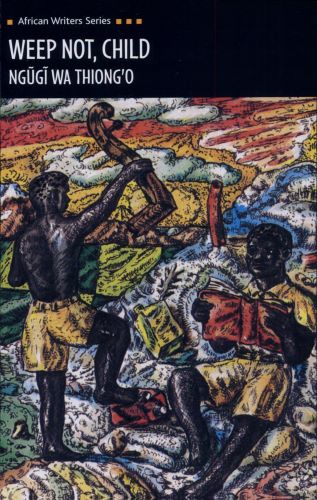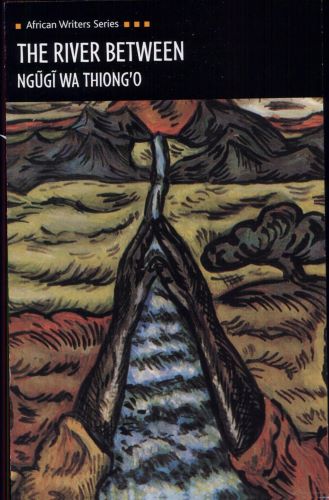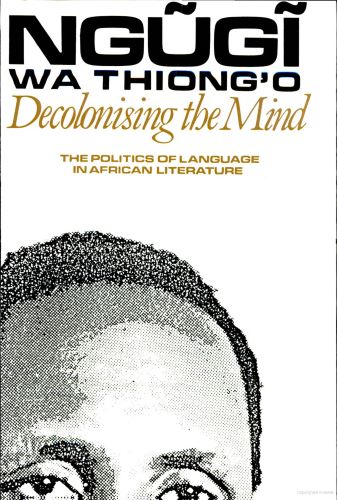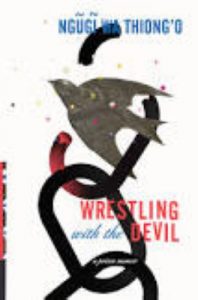
Considered as the Giant of African Literature, Ngũgĩ had to languish in jail and live in exile for his rebellious writings; he has been honored with dozens of international awards and over a dozen honorary degrees of doctorate
SHOUKAT LOHAR
 Ngũgĩ wa Thiong’o is a renowned Kenyan writer, academic and activist whose work has greatly influenced African literature and post-colonial studies. Born on January 5, 1938, in Kamiriithu, Kenya, Ngũgĩ has spent a significant part of his life advocating for social change through his writings. His novels, plays, and essays reflect his commitment to addressing the socio-political issues faced by his country and the African continent as a whole. This article will delve into Ngũgĩ wa Thiong’o’s life sketch, particularly focusing on his influential novel “Weep Not, Child,” its introduction, critical summary, main characters, and excerpts that demonstrate his resistance against English colonialism.
Ngũgĩ wa Thiong’o is a renowned Kenyan writer, academic and activist whose work has greatly influenced African literature and post-colonial studies. Born on January 5, 1938, in Kamiriithu, Kenya, Ngũgĩ has spent a significant part of his life advocating for social change through his writings. His novels, plays, and essays reflect his commitment to addressing the socio-political issues faced by his country and the African continent as a whole. This article will delve into Ngũgĩ wa Thiong’o’s life sketch, particularly focusing on his influential novel “Weep Not, Child,” its introduction, critical summary, main characters, and excerpts that demonstrate his resistance against English colonialism.
Ngũgĩ wa Thiong’o’s early life experiences greatly shaped his perspective on colonialism and its effects. He grew up in a rural setting during a time when Kenya was under British colonial rule. These experiences, combined with his education and subsequent exposure to Western literature, influenced his writing style and thematic concerns. Ngũgĩ’s works are known for their vivid portrayal of the struggles faced by ordinary Africans, their exploration of identity, and their critique of colonialism and neocolonialism.
“Weep Not, Child” was Ngũgĩ’s debut novel, published in 1964. It tells the story of Njoroge, a young boy growing up in colonial Kenya, and his aspirations to receive an education despite the obstacles presented by the oppressive system. The novel explores the themes of education, independence, and the effects of colonialism on African society.
 Critically acclaimed, “Weep Not, Child” received praise for its compelling narrative and poignant portrayal of the human cost of colonialism. The novel highlights the struggles and sacrifices made by individuals within a larger political context. Ngũgĩ masterfully captures the tension between personal aspirations and collective struggles, offering a nuanced perspective on the complexities of liberation.
Critically acclaimed, “Weep Not, Child” received praise for its compelling narrative and poignant portrayal of the human cost of colonialism. The novel highlights the struggles and sacrifices made by individuals within a larger political context. Ngũgĩ masterfully captures the tension between personal aspirations and collective struggles, offering a nuanced perspective on the complexities of liberation.
The characters in “Weep Not, Child” embody various facets of the African experience under colonial rule. Njoroge, the protagonist, symbolizes the hopes and dreams of a generation seeking education and social mobility. His brother, Kamau, represents the resistance movement and the desire for armed struggle against the colonial oppressors. Other characters, such as Ngotho (Njoroge’s father), Mwihaki (Njoroge’s love interest), and Mr. Howlands (the white settler) contribute to the multi-dimensional portrayal of the socio-political landscape.
Excerpts from the novel highlight Ngũgĩ wa Thiong’o’s resistance against English colonialism. In one passage, Njoroge laments the inequalities of the education system, stating, “Education was the key to everything. It unlocked the mystery of why some people lived and others perished” (Weep Not, Child). This quote emphasizes the central role education plays in the fight against oppression and the quest for liberation.
 Furthermore, Ngũgĩ’s choice to write the novel in English, the language of the colonizers, can be seen as an act of subversion. By using the language of the oppressor, Ngũgĩ reclaims it and employs it as a tool to load the atrocities the imperialism carried out upon the colonized.
Furthermore, Ngũgĩ’s choice to write the novel in English, the language of the colonizers, can be seen as an act of subversion. By using the language of the oppressor, Ngũgĩ reclaims it and employs it as a tool to load the atrocities the imperialism carried out upon the colonized.
He won not only dozens of international literary awards but was also awarded over a dozen honorary degrees of doctorate by the universities of various countries.
Ngũgĩ was arrested in 1977 by the government when his novel ‘Petals of Blood’ was published. The Kenyan authorities also confiscated copies of the book and kept him in jail for a year where he was allowed only one hour daylight. After his release, he was not allowed to join his job as university professor and was harassed to such extent that he had to live in exile along with his family till 2002 when the Kenyan President Arap Moi.
During his time in prison, Ngũgĩ made the decision to cease writing his plays and other works in English and began writing all his creative works in his native tongue, Gikuyu.
Literary Works
Novels
 Weep Not, Child (1964), The River Between (1965), A Grain of Wheat (1967, 1992), Petals of Blood (1977), Caitaani Mutharaba-Ini (Devil on the Cross, 1980), Matigari ma Njiruungi, 1986 (Matigari, translated into English by Wangui wa Goro, 1989), Mũrogi wa Kagogo (Wizard of the Crow, 2004), The Perfect Nine: The Epic of Gĩkũyũ and Mũmbi (2020).
Weep Not, Child (1964), The River Between (1965), A Grain of Wheat (1967, 1992), Petals of Blood (1977), Caitaani Mutharaba-Ini (Devil on the Cross, 1980), Matigari ma Njiruungi, 1986 (Matigari, translated into English by Wangui wa Goro, 1989), Mũrogi wa Kagogo (Wizard of the Crow, 2004), The Perfect Nine: The Epic of Gĩkũyũ and Mũmbi (2020).
Short story collections
A Meeting in the Dark (1974), Secret Lives, and Other Stories, (1976, 1992), Minutes of Glory and Other Stories (2019).
Plays
The Black Hermit (1963), This Time Tomorrow (three plays, including the title play, “The Rebels”, “The Wound in the Heart” and “This Time Tomorrow”) (1970), The Trial of Dedan Kimathi (1976). Ngaahika Ndeenda: Ithaako ria ngerekano (I Will Marry When I Want) (1977, 1982)
Memoirs
Detained: A Writer’s Prison Diary (1981), Dreams in a Time of War: a Childhood Memoir (2010), In the House of the Interpreter: A Memoir (2012), Birth of a Dream Weaver: A Memoir of a Writer’s Awakening (2016), Wrestling with the devil: A Prison Memoir (2018).
Other nonfiction
 Education for a National Culture (1981), Barrel of a Pen: Resistance to Repression in Neo-Colonial Kenya (1983), Mother, Sing For Me (1986), Writing against Neo-Colonialism (1986), Decolonizing the Mind: The Politics of Language in African Literature (1986), Moving the Centre: The Struggle for Cultural Freedoms (1993), Pen points, Gun points and Dreams: The Performance of Literature and Power in Post-Colonial Africa (The Clarendon Lectures in English Literature 1996), Something Torn and New: An African Renaissance (2009), Globalectics: Theory and the Politics of Knowing (2012), Secure the Base: Making Africa Visible in the Globe (2016), The Language of Languages (2023).
Education for a National Culture (1981), Barrel of a Pen: Resistance to Repression in Neo-Colonial Kenya (1983), Mother, Sing For Me (1986), Writing against Neo-Colonialism (1986), Decolonizing the Mind: The Politics of Language in African Literature (1986), Moving the Centre: The Struggle for Cultural Freedoms (1993), Pen points, Gun points and Dreams: The Performance of Literature and Power in Post-Colonial Africa (The Clarendon Lectures in English Literature 1996), Something Torn and New: An African Renaissance (2009), Globalectics: Theory and the Politics of Knowing (2012), Secure the Base: Making Africa Visible in the Globe (2016), The Language of Languages (2023).
Children’s books
Njamba Nene and the Flying Bus (translated by Wangui wa Goro) (1986), Njamba Nene and the Cruel Chief (translated by Wangui wa Goro) (1988), Njamba Nene’s Pistol (1990), The Upright Revolution, Or Why Humans Walk Upright (2019).
Homecoming: Essays on African and Caribbean Literature, Culture, and Politics (1972).
[Edited with additional information by Nasir Aijaz]
______________
 Shoukat Lohar is Assistant professor in English at Mehran University of Engineering and Technology Jamshoro. He can be reached at Shoukat.ali@faculty.muet.edu.pk
Shoukat Lohar is Assistant professor in English at Mehran University of Engineering and Technology Jamshoro. He can be reached at Shoukat.ali@faculty.muet.edu.pk